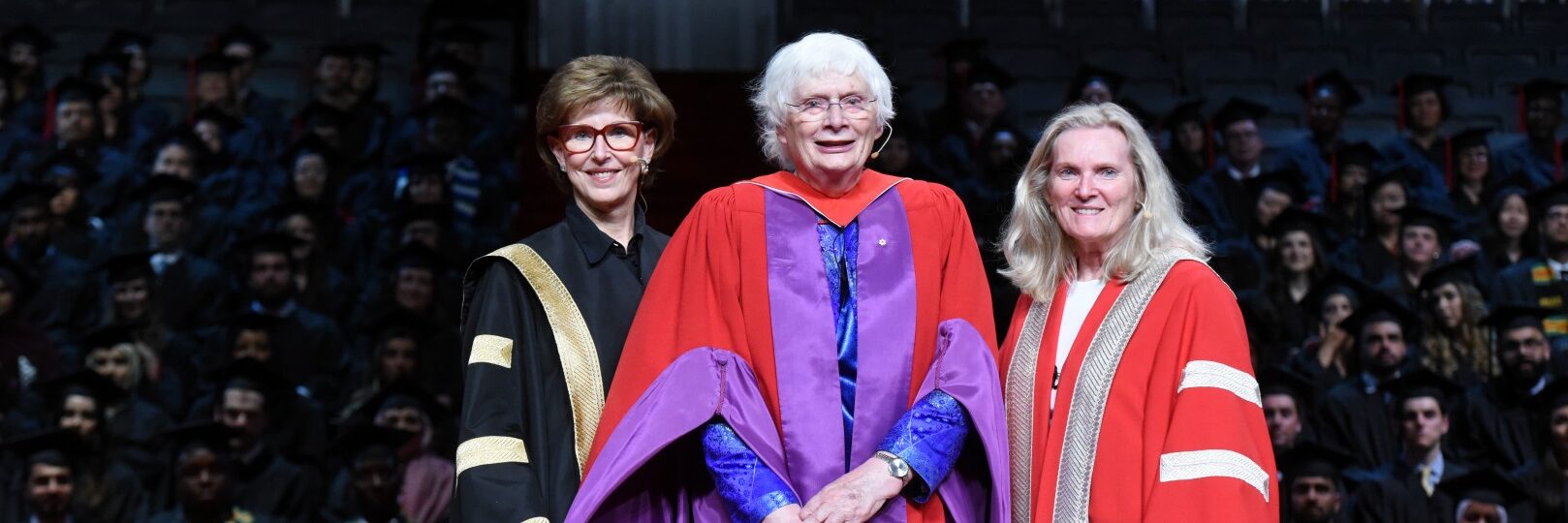On May 14, Osgoode Hall Law School proudly welcomed alumni, faculty, and friends to its annual Alumni Awards Reception at Osgoode Professional Development. The evening celebrated those whose leadership and impact continue to shape the legal profession and society.
The awards recognized recipients across three categories: Mentor of the Year, the Gold Key Awards, and the Dianne Martin Medal for Social Justice Through Law.
Mentor of the Year: Shanice Prendergast ’19
Shanice Prendergast was recognized for her exceptional mentorship, offering thoughtful guidance and unwavering support to help JD students navigate their legal journeys with confidence.
Gold Key Award Recipients
Trevor J. Fairlie ’19 – One-to-Watch
A leader in securities law and a passionate advocate for LGBTQ2S+ inclusion, Trevor has already made a national impact through his legal work, community leadership, and teaching.
Laura Wilson-Lewis ’15 – One-to-Watch
A rising force in entertainment law, Laura is also a dedicated mentor and advocate for Black students, helping to build a more inclusive legal profession.
Jonathan Davey ’08 – Service
A long-time member of Osgoode’s Alumni Association, Jonathan has shown exceptional service through mentorship, Board leadership, and public service.
Giuseppe Ferraro ’01 – Public Sector
With over two decades in Ontario’s public service, Giuseppe has led major legislative and policy initiatives, including key contributions to pandemic response and human trafficking legislation.
Andrew Monkhouse ’12 – Distinction
Founder of Monkhouse Law, Andrew has built one of Canada’s fastest-growing employment law firms while championing access to justice and mentoring future legal professionals.
The Honourable William Hourigan ’90 – Lifetime Achievement
A respected jurist on the Court of Appeal for Ontario, Justice Hourigan was honoured for his distinguished career, commitment to public service, and mentorship of young lawyers.
Dianne Martin Medal for Social Justice: Professor Janet Mosher
Professor Janet Mosher received the Dianne Martin Medal for her decades-long dedication to social justice, poverty law, and clinical legal education. Her influential scholarship and advocacy have shaped national policy and inspired generations of students.
Reflecting on the evening, Dean Farrow remarked:
“Osgoode is so proud of our remarkable alumni community. These award recipients, recognized by their peers, remind us of what it means to be lawyers, leaders, and community builders. Their contributions—whether through mentoring, advocacy, or championing new ideas—are truly inspiring.”
The 2025 Alumni Awards highlighted not only individual accomplishments but also the collective strength of Osgoode’s alumni community. We extend our heartfelt congratulations to all the honourees for their remarkable contributions.









